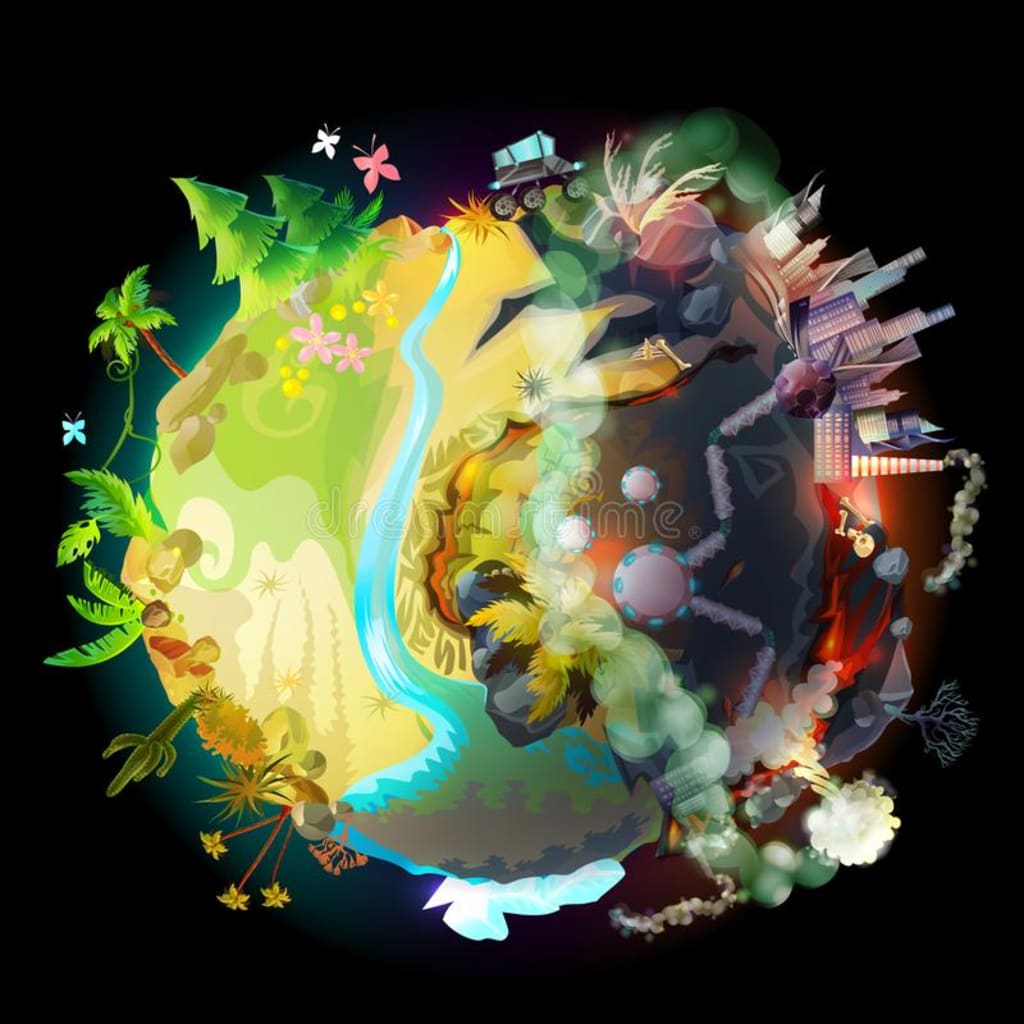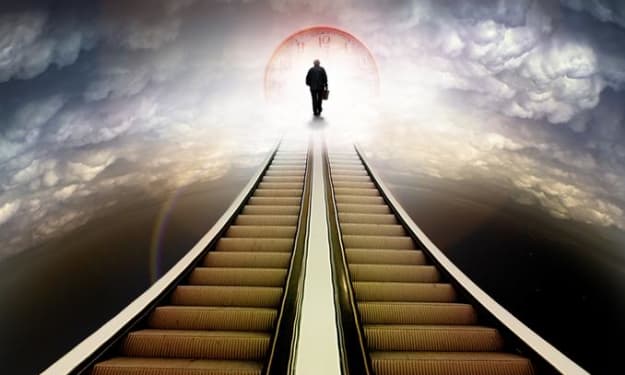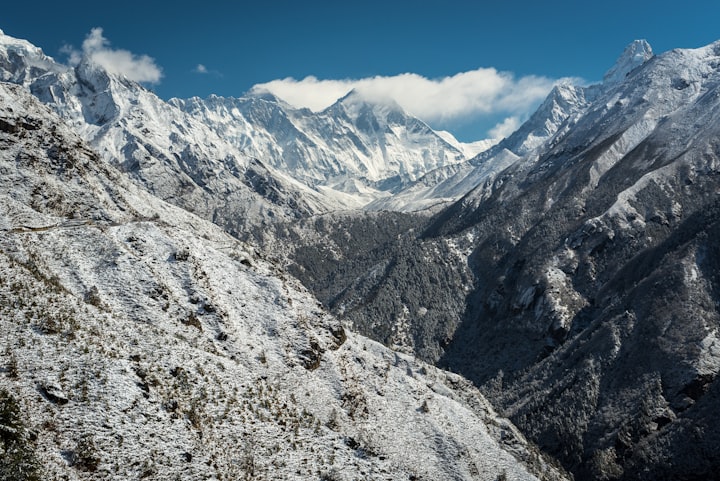The Epic Journey of Earth: From a Lifeless Planet to a Thriving World Filled with Wonder and Beauty
Exploring the Origins and Evolution of our Home in the Universe

Once upon a time, the Earth was just a vast, empty expanse of space, with nothing but darkness and silence surrounding it. It was a desolate and lifeless place, a blank canvas waiting to be painted with the colors of existence.
And then, one day, a bright, glowing light appeared in the distance. As it drew closer, the light began to take shape, coalescing into a massive, fiery ball that illuminated the emptiness around it. This was the birth of the sun, the centerpiece of the solar system that would eventually give birth to life as we know it.
As the sun burned brightly in the center of the universe, it began to draw in other matter from the surrounding space. Clouds of gas and dust coalesced around the sun, forming a swirling disk of debris that would eventually coalesce into the planets of the solar system.
The early Earth was a hot, molten ball of rock and lava, constantly bombarded by meteorites and asteroids. But as time went on, the planet began to cool and solidify, forming a solid crust on its surface.
At first, the Earth was a barren, lifeless place, with no oceans, no atmosphere, and no living creatures. But over time, something miraculous happened: the first living organisms began to emerge, slowly evolving from simple bacteria into more complex organisms.
These early life forms thrived in the primordial oceans that covered the Earth's surface, feeding on the nutrients that were abundant in the water. As they grew and multiplied, they began to change the composition of the atmosphere, releasing oxygen as a waste product.
This oxygen slowly built up in the atmosphere over millions of years, eventually creating a breathable atmosphere for more complex life forms. And so, over time, the first plants and animals began to emerge from the oceans and onto the land.
The Earth continued to evolve and change over time, with continents shifting and colliding, and new species evolving and going extinct. But through it all, life continued to thrive and adapt, with each new generation building upon the legacy of the one that came before it.
And so, from the darkness and emptiness of the universe, the Earth emerged as a vibrant, thriving world, full of wonder and beauty. It is a testament to the power of life, and a reminder of the infinite possibilities that lie waiting in the universe beyond.
As the Earth continued to evolve, the diverse landscapes and ecosystems that we know today began to take shape. Forests, grasslands, deserts, and oceans teemed with life, each habitat supporting a unique array of creatures and plant life.
Animals of all shapes and sizes roamed the Earth, from tiny insects to massive dinosaurs. As time went on, some species evolved to be more intelligent than others, eventually leading to the emergence of human beings.
Humans were not the first creatures to walk the Earth, but they were certainly the most unique. With their advanced brains and tool-making abilities, they quickly rose to dominate the planet, reshaping the landscape to suit their needs and desires.
Over the centuries, humans have left their mark on the Earth in countless ways, building towering cities, constructing vast road networks, and harnessing the power of technology to transform the world around them.
But with great power comes great responsibility, and humans soon learned that their actions could have profound and long-lasting impacts on the planet. From pollution and climate change to deforestation and overfishing, humans have caused significant damage to the Earth's delicate ecosystems, putting countless species at risk of extinction.
Despite these challenges, there is hope for the future. With each passing year, scientists and conservationists are making strides in protecting the Earth's precious resources, and working to find ways to coexist with the natural world in a sustainable and responsible way.
Perhaps one day, the Earth will be restored to its former glory, a vibrant and thriving planet teeming with life and beauty. And perhaps, in the endless expanse of the universe, there are other planets out there waiting to follow in our footsteps, to grow and evolve and create new forms of life that we can only imagine.
But for now, the Earth remains our home, a precious and fragile planet that we must do everything in our power to protect and preserve for future generations. And so, we must continue to learn, to explore, and to appreciate the wonders of this incredible planet that we call home.






Comments
There are no comments for this story
Be the first to respond and start the conversation.